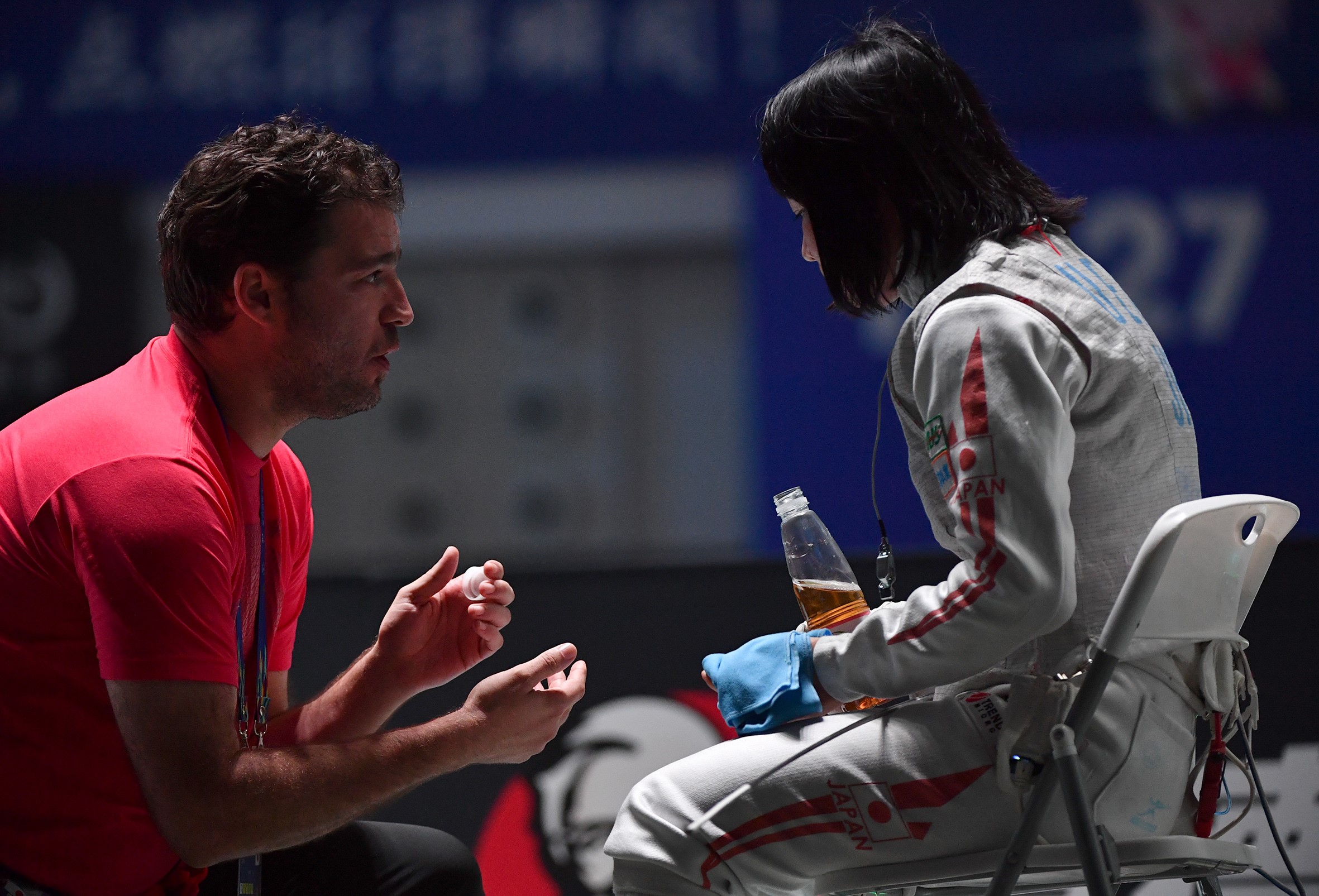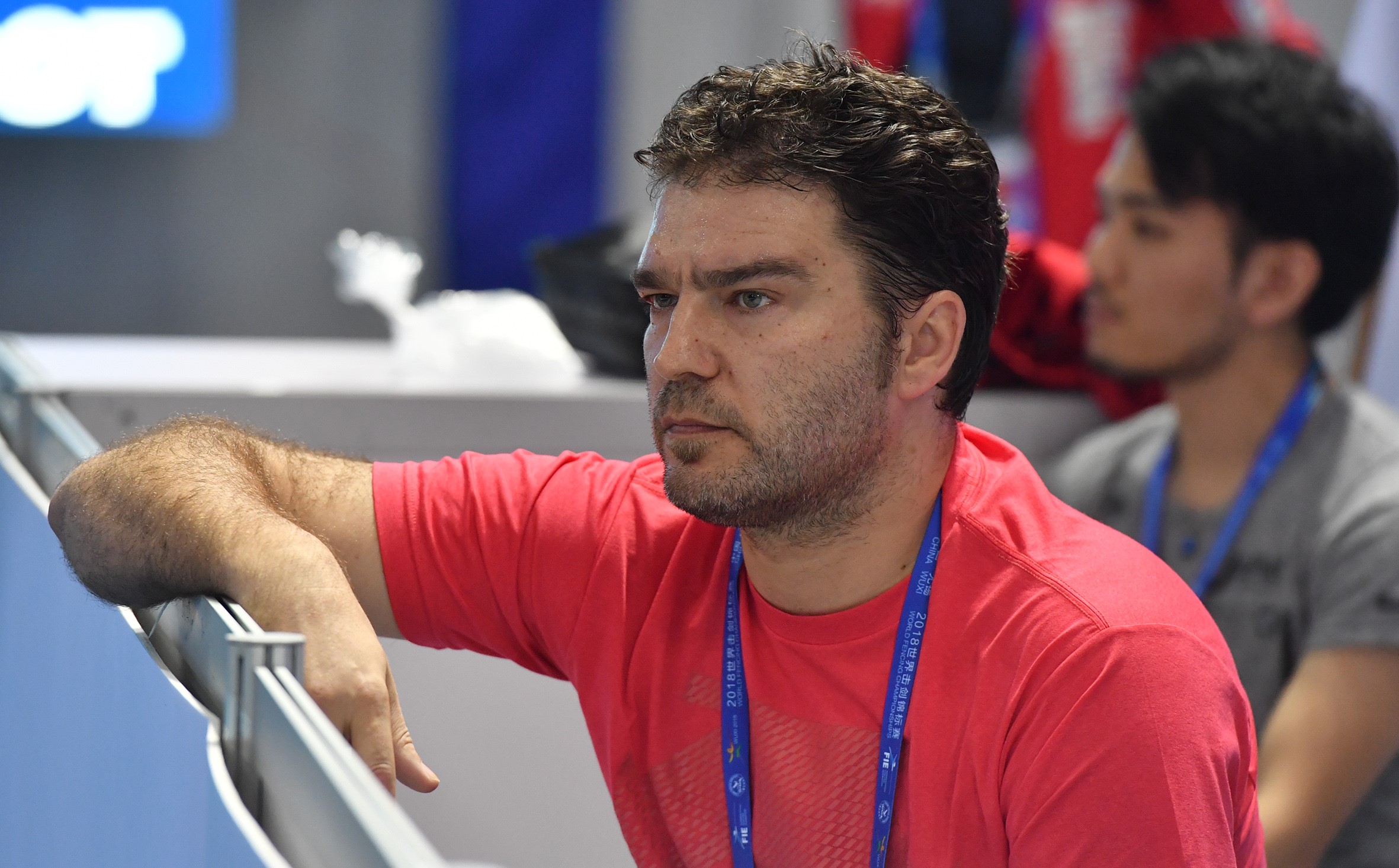Franck Boidin fences anywhere and everywhere. Whether frequenting the well-worn, wood-lined salles of France, the streamlined new practice gyms in Japan, or coaching foilists alongside the finals piste at an FIE Grand Prix, fencing is Franck’s home. For him, fencing is life.

Now the coach of the Japanese national women’s foil team, Franck has been in fencing for almost 40 years and possesses a rich history in our sport. We reached him in Tokyo, preparing for the World Championships in Wuxi.
FIE: How did you become a fencer?
FB: I began fencing in school when I was eight years old [in France]. The fencing coach called my parents to ask if I would like to come to the fencing club; I gave it a try and the ambience was really cool. I began getting some good results in local fencing competitions.
FIE: Who has been the greatest influence in your life as a fencer?
FB: The greatest influence came from different coaches I have had, and the first one, of course, Fabrice Vanhems, taught me the pleasure of the game and his passion for fencing. Then Mario Bourdageau was my coach when I attended the National Cadet Center, and he showed me what high performance in fencing meant, and what was needed to fence at that level. After this, I went to the National Center for Seniors (INSEP), where I met Christian Martin. He was very specific about technique, and we spent many hours working on details—it was like rediscovering my sport. Then, Patrice Menon, who was the national coach after Martin, was the one who made us believe we could win! Finally, not as a coach but as a person, I have to name Christian D’Oriola, who was so very kind and interested in the evolution of fencing. I have never met a champion so humble.
FIE: What do you consider your best achievement as a fencer?
FB: When we won the World Championships with the French team in 1997 in Cape Town. Because we were four friends (Lionel Plumenail, Patrice Lhotellier, Olivier Lambert and myself), it was against the best team I have ever fenced (from Cuba), and it had been almost 30 years since France had won this competition.
FIE: How and why did you become a coach?
FB: I began to think about coaching a few years before ending my athletic career, and I was one of the oldest in the group. I took pleasure in helping and advising younger fencers. I studied and obtained the “maitrise d’armes” and then the “professorship” of sport, meaning you work for the ministry of sport in France, and the ministry allows you to work with federations. I worked in an office outside the French Fencing Federation (FFE) for one year, when the national director, Michel Sicard, called me and offered me the position of national men’s foil coach. That is how I started working with athletes such as Enzo Lefort, Julien Mertine, and Jean-Paul Tony-Helissey.
FIE: What do you consider your best experiences as a coach?
FB: To coach the French women’s foil team at a world level. When we began working with Emeric Clos, the team was number 12 in the world. After three years, they earned four medals in a row at the World Championships (2013, 2014, 2015, 2016). The girls believed in us and the Federation let us work without pressuring us.
FIE: Tell us about your transition to coaching in Japan. How has that experience been for you?
FB: One year before the Rio 2016 Olympic Games, I had dinner with Yuki Ota and Erwan Lepechoux, and Erwan asked him “What will you do after Rio?” and Yuki responded (half joking), “I will try to bring your coach to Japan to be the national trainer, it will be my job”. So, in Rio after the competition, I met with the Japanese Fencing Federation, who if I would work in Japan with the goal of Tokyo 2020.
The experience is amazing, and has been a total change of my world. Of course, it is sometimes difficult to be far from my family and friends, but the people here are so very kind and they really make you feel happy and comfortable.
The biggest problem now is learning Japanese. I’m trying to learn the language, but it is really difficult, so we speak English and slowly—too slowly!
FIE: What are your best fencing experiences?
FB: Wow, there are so many. I would have to say watching Fabrice Jeannet (FRA) against Pavel Kolobkov. It’s just the best of what epee can show you!
FIE: What are your goals and dreams in your fencing career, going forward?
FB: My dream is to continue my passion—I never saw fencing as a job—as long as I can. My goals are always the same: trying to give and make the best with my athletes and staying honest with my choices. Of course, results are important, but if you take the example of the Olympic Games, only three people have a medal and it doesn’t mean all the others did poorly or aren’t good!

The Personal Side of Franck Boidin
Favorite Music: I’m very eclectic, and it depends on the period. Bob Marley, BB King, Alicia Keys, Ben Harper, IAM, 2Pac, AD/DC. Now I’m listening to music like Jeff Buckley, Leonard Cohen, although today I’m listening to Rage Against the Machine.
Favorite Food: The real pizza from Napoli, a nice plate of pasta vongole and sushi (but only the real thing!). I like to cook seafood and here in Japan it's the perfect place.
Biggest Fencing Star: For me, a champion/star is not only about results, but about how they act on- and off-piste, so I would say Christian D’Oriola. He had elegance, skill, charisma, on the piste and even more off of it. As I said before, he was humble, interested, and I never heard a critical word from him about the evolution of fencing. He was always there to support with only a few words or just a look. I miss him.